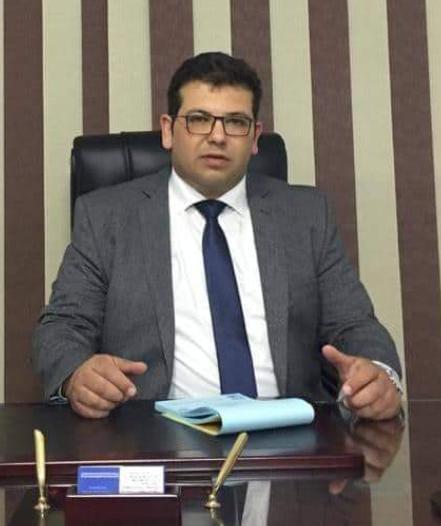Dr. Mohamed Ahmed Adel Abdel Wahab
Lecturer and Assistant Professor of Cardiology and Vascular Diseases - Kasr Al-Ainy School of Medicine
🎓 Academic Qualifications:
Ph.D. in Cardiology and Vascular Diseases - Cairo University
Diploma in Cardiology - Cairo University
Specialized Certificate in Interventional Cardiac Catheterization
Specialized Certificate in Echocardiography
💼 Academic and Professional Positions:
Lecturer in Cardiology and Vascular Diseases - Kasr Al-Ainy School of Medicine
Deputy Director of the Emergency Department - Kasr Al-Ainy Hospital
Head of Training Affairs at Cairo University Hospitals
Consultant in Interventional Cardiac Catheterization
Member of the Egyptian Society of Cardiology
Member of the European Society of Cardiology
💓 Fields and Specializations:
Heart and Artery Diseases:
🫀 Coronary Artery Disease: Treatment of blocked or narrowed coronary arteries that cause chest pain or heart attacks.
🧠 Heart Valve Diseases: Diagnosis and treatment of valve issues such as stenosis or regurgitation.
💥 Angina Pectoris: Treatment of acute and chronic angina using medications or catheterization.
📉 Hypertension: Diagnosis and treatment of systemic and pulmonary hypertension.
💔 Heart Failure: Treatment of heart failure and pulmonary hypertension.
🚨 Coronary Artery Disease: Early and preventive diagnosis and treatment to reduce cardiac risks.
⚡ Heart Rhythm Problems (Electrical Disorders): Conditions like atrial and ventricular fibrillation, and treatment of arrhythmias.
Interventional Cardiac Catheterization:
🩺 Coronary Angioplasty: A simple procedure to open blocked or narrowed coronary arteries using balloons or stents.
🖐 Radial Access Catheterization: Performing catheterization through the radial artery in the hand instead of the femoral artery to reduce pain and complications.
🔧 Valve Balloon Dilation via Catheter: An advanced procedure to enlarge narrowed heart valves using a catheter, improving blood flow.
💉 Stent Placement: Insertion of stents into arteries to improve blood flow and prevent blockage; a fast and safe procedure.
Advanced Cardiac Tests:
🔬 Echocardiography (Ultrasound on the Heart): Precise diagnosis of heart condition and surrounding tissues to detect valve or ventricle issues.
⚡ Electrocardiogram (ECG): Used to measure the electrical activity of the heart and detect any irregularities in heartbeats.
⏳ 24-hour Holter Monitor: A portable device that records the heart's electrical activity over 24 hours to monitor any rare changes or irregularities in heart rhythms.
📊 24-hour Blood Pressure Monitoring: A portable device that measures blood pressure over 24 hours to detect consistent elevations or fluctuations.
🏃♂️ Exercise Stress Test (ECG Stress Test): A test to evaluate the heart's ability to function under stress, useful for detecting hidden coronary artery diseases.
Prevention and Long-Term Treatment:
🔍 Early Diagnosis of Heart Diseases: Conducting accurate tests to identify potential heart and artery issues before complications arise.
💊 Treatment of Lipid and Cholesterol Disorders: Managing cholesterol and fat levels in the blood with medications and diet to prevent heart diseases.
🏥 Treatment of High Cholesterol and Blood Fats: Providing treatment plans to improve blood fat levels and avoid heart problems related to high cholesterol.
🔄 Post-Stent Placement Monitoring: Providing thorough follow-up care after stent placement to prevent blockages or complications.
🦠 Treatment of Rheumatic Fever: Addressing heart inflammation and complications resulting from rheumatic fever.
Supportive Services:
👩🦰 Diagnosis and Treatment of Heart Diseases in Women: Since heart disease symptoms in women can be different, Dr. Mohamed Ahmed pays special attention to these cases.
🛏 Intensive Care for Critical Heart Conditions: Offering intensive care for patients suffering from severe heart attacks or complex conditions.
⚠️ Treatment of Acute Heart Attacks: Providing immediate medical support for patients experiencing heart attacks or severe symptoms.
📅 Appointments:
📍 Address:
4 Al-Mansour Tower, Second Floor, Apartment 203,
Shatra 13, Zahraa El Maadi,
Extension of Carrefour Main Road, Opposite Hub 50 Mall, Cairo.
📞 Phone Number:
01063836434
⏳ Waiting Time:
Approximately 39 minutes
✨ Advantages of Treatment with Dr. Mohamed Ahmed Adel Abdel Wahab:
💻 Advanced Technology: Dr. uses the latest technologies for diagnosing and treating heart diseases, including advanced interventional catheterization and cardiac tests.
👩⚕️ Personalized Care and Close Follow-up: Regular follow-ups ensure effective responses to treatment and the best outcomes.
🏥 Comfortable Medical Environment: A comfortable and modern medical environment helps reduce stress and ensures patient comfort during tests and treatments.
📝 Comprehensive Health Tips: Dr. provides advice on nutrition, healthy lifestyles, and medications to help prevent heart diseases.
🔚 Conclusion:
Dr. Mohamed Ahmed Adel Abdel Wahab is one of Egypt's leading specialists in cardiology and vascular diseases, thanks to his deep expertise in treating these conditions. By utilizing the latest medical technologies and specialized treatment methods, he ensures that his patients receive the best possible cardiac care.

